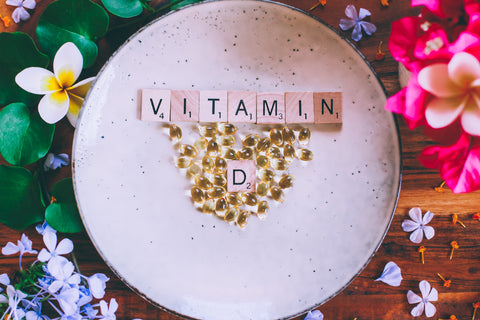
Introduction:
In the intricate dance of bone, muscle, and overall well-being, vitamin D emerges as a silent but crucial player. As we delve into the depths of spinal health, it becomes evident that this sunshine vitamin plays a pivotal role. In this article, we will uncover the intricate connection between vitamin D deficiency and back pain, exploring its sources and unraveling its role in maintaining the health of our bones and muscles.
The Link Between Vitamin D Deficiency and Back Pain: Vitamin D, often referred to as the sunshine vitamin, is a key player in maintaining a healthy musculoskeletal system. Research has established a strong connection between vitamin D deficiency and various musculoskeletal issues, including back pain. This relationship is multifaceted, involving the regulation of calcium absorption, bone health, and muscle function.
The Calcium Connection: One of the primary roles of vitamin D is to facilitate the absorption of calcium from the intestines. Calcium, often hailed as the building block of bones, is essential for maintaining bone density and strength. When vitamin D levels are insufficient, the body struggles to absorb an adequate amount of calcium, leading to weakened bones and potentially contributing to back pain.
Vitamin D and Bone Health: Beyond calcium absorption, vitamin D is intricately involved in bone metabolism. It helps regulate the balance between bone formation and resorption, ensuring that bones remain strong and resilient. In the absence of sufficient vitamin D, this delicate equilibrium is disrupted, potentially paving the way for conditions like osteoporosis and back pain.
Muscle Matters: Vitamin D and Muscle Function: Vitamin D extends its influence beyond bones to the muscles, playing a vital role in muscle function. A deficiency in vitamin D may contribute to muscle weakness, pain, and an increased risk of falls. In the context of spinal health, strong and resilient muscles are crucial for supporting the spine and preventing discomfort.
Sources of Vitamin D:
-
Sunshine:

The most natural source of vitamin D is sunlight. Spending time outdoors, especially during peak sunlight hours, allows the skin to produce vitamin D. Aim for around 10-30 minutes of sun exposure several times a week.
2. Dietary Sources:

While relatively few foods naturally contain vitamin D, some options include fatty fish (such as salmon and mackerel), fortified dairy products, egg yolks, and certain types of mushrooms.
3. Supplements:

In cases where natural sources are insufficient, vitamin D supplements can be recommended under the guidance of a healthcare professional. This is especially relevant for individuals with limited sun exposure or specific dietary restrictions.
Incorporating Vitamin D into Your Lifestyle:
-
Sunshine Rituals: Prioritize outdoor activities during sunny days, incorporating walks, gardening, or other outdoor pursuits into your routine.
-
Dietary Choices: Include vitamin D-rich foods in your diet, focusing on fish, fortified dairy products, and other sources. Consider consulting a nutritionist for personalized dietary advice.
-
Supplementation: If sunlight and dietary sources are insufficient, consult with a healthcare professional to determine the appropriate vitamin D supplementation for your needs.
Conclusion: In the intricate web of spinal health, vitamin D stands as a guardian, influencing the strength of our bones and the resilience of our muscles. Understanding the connection between vitamin D deficiency and back pain allows us to take proactive steps towards a healthier, more robust spine. From embracing the warmth of sunlight to incorporating vitamin D-rich foods, let's return to the basics and prioritize this essential nutrient for the well-being of our backs and bodies. After all, in the dance of health, vitamin D deserves a spotlight of its own.




